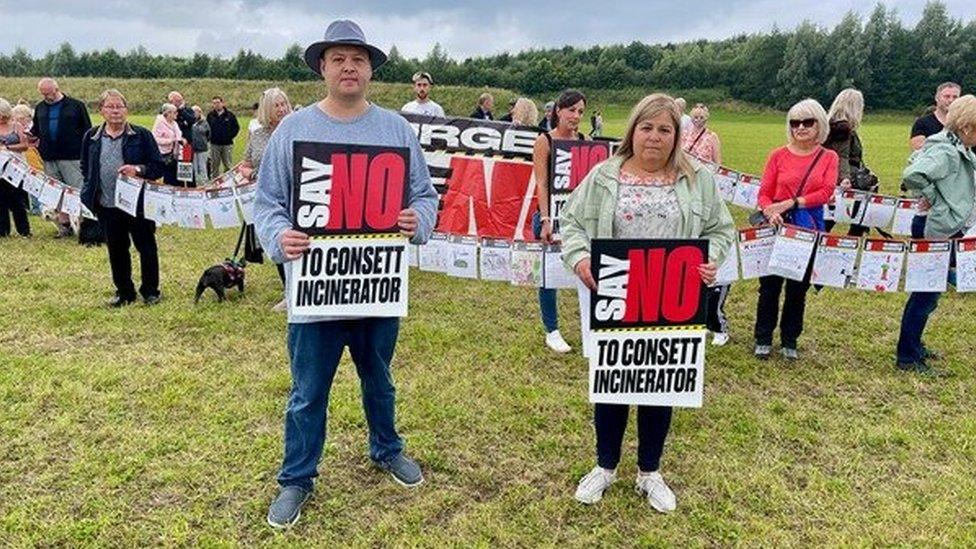Consett Hownsgill incinerator inquiry: Jobs and local benefits highlighted
- Published
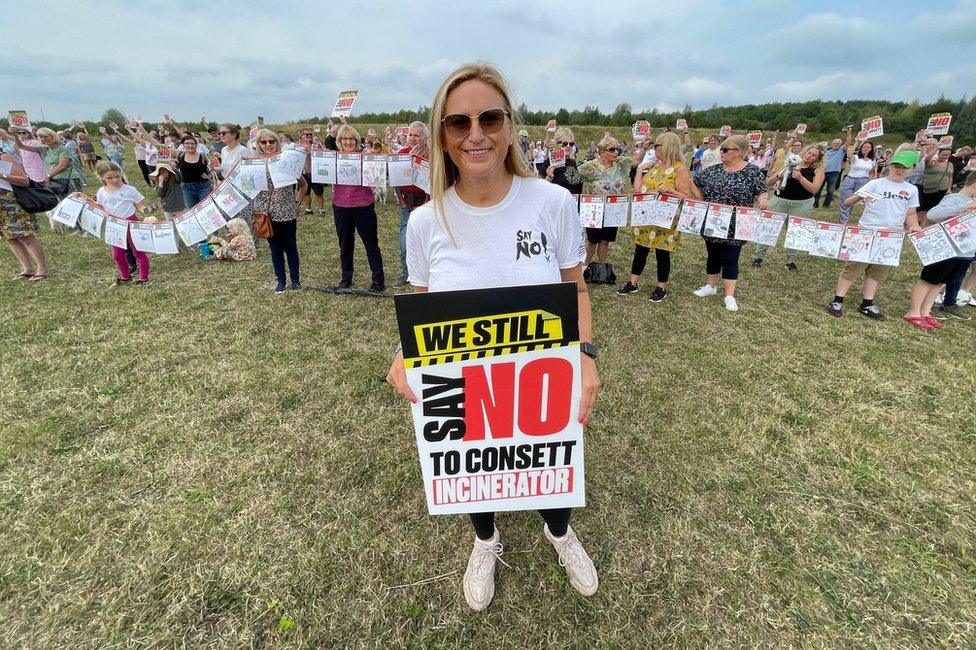
The Hownsgill Energy Centre scheme has met local opposition
A proposed incinerator could bring jobs and alleviate local fuel poverty, a public inquiry has heard.
The facility on Consett's Hownsgill Industrial Park would see investment of up to £47.5m, it was told.
However, a Durham County Council planning officer questioned whether the suggested benefits, which "lacked substance", would be delivered.
Developer Project Genesis is appealing against the council's decision to refuse planning permission.
'Unacceptable' harm
The energy-from-waste facility would process up to 60,000 tonnes of fuel per year from non-recyclable commercial and industrial waste, the Local Democracy Reporting Service said.
Project Genesis' representative Andrew Tabachnik QC said 609,000 tonnes of regional waste currently went to landfill and 365,000 tonnes was transported out of the North East or abroad.
He said the company would invest £30m in construction with another £10m spent on a district heat power network and between £3.6m and £7.5m to enable a nearby solar farm plan otherwise deemed "not viable".
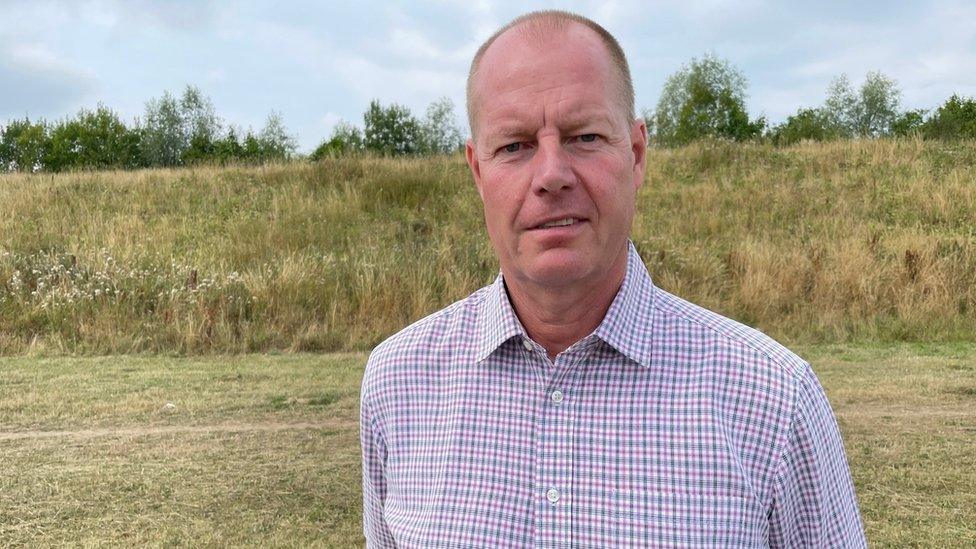
Project Genesis' managing director Mark Short said it had dealt with concerns about emissions, noise and smell
If the scheme went ahead there would be a trust fund of £120,000 a year for "people who demonstrate they're in fuel poverty", Mr Tabachnik said.
This would be a "significant benefit", he added.
Mr Tabachnik said the industrial estate had struggled to attract businesses and the incinerator scheme could be the "catalyst" for development, bringing jobs and helping to make the town centre more sustainable.
But senior planning officer Chris Shields said the claims were "speculative".
He told the inquiry at County Hall the proposed plant with a 50m-high chimney stack would cause "unacceptable" harm to surrounding landscapes and heritage.
Proposed benefits such as a district heating system, support for businesses and a community energy company lacked detail, infrastructure, obligations or conditions, he said.
He accepted they would be welcome, but said they "lacked substance" and should be given limited, or no, weight by the inquiry.
The hearing continues.

Follow BBC North East & Cumbria on Twitter, external, Facebook, external and Instagram, external. Send your story ideas to northeastandcumbria@bbc.co.uk, external.
- Published12 August 2022
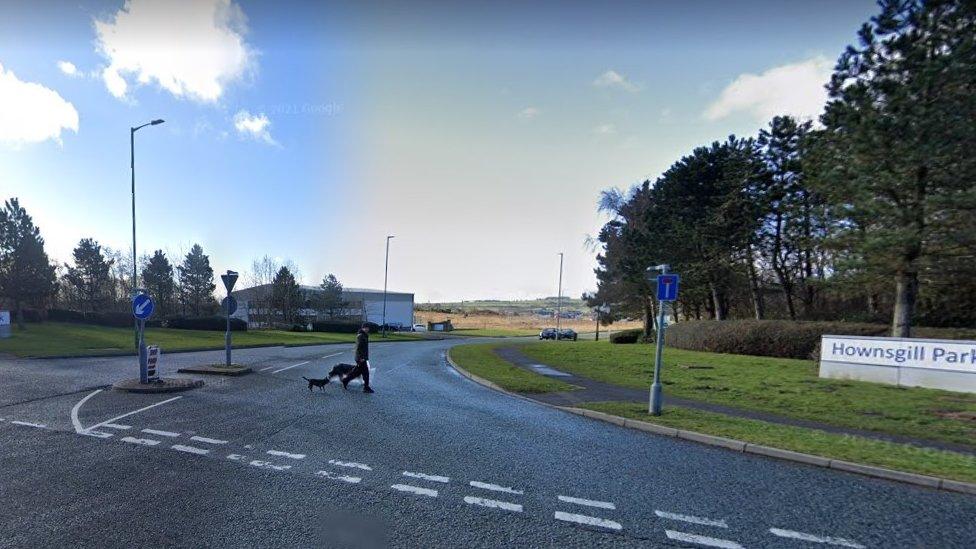
- Published11 August 2022
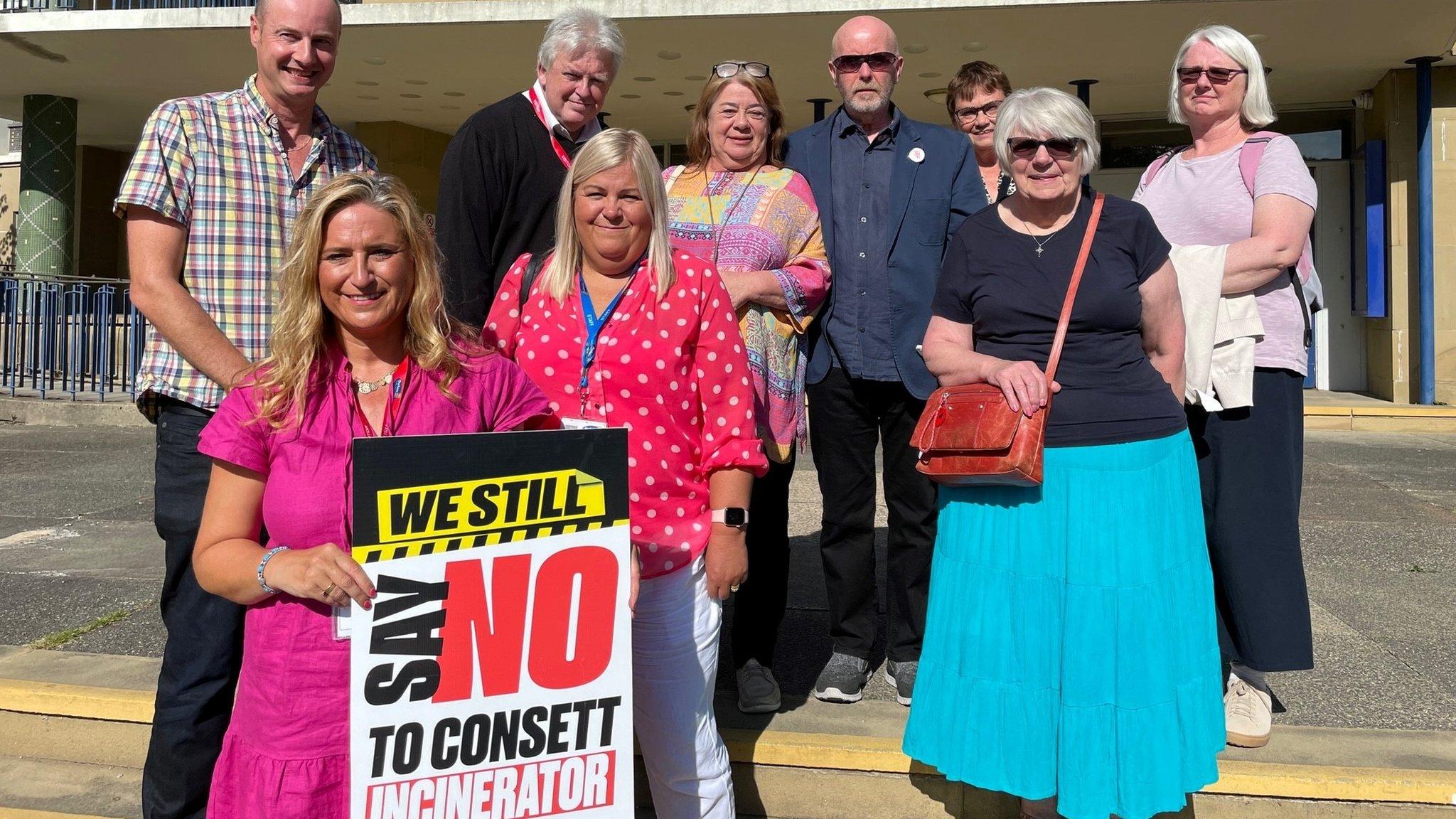
- Published7 September 2021
